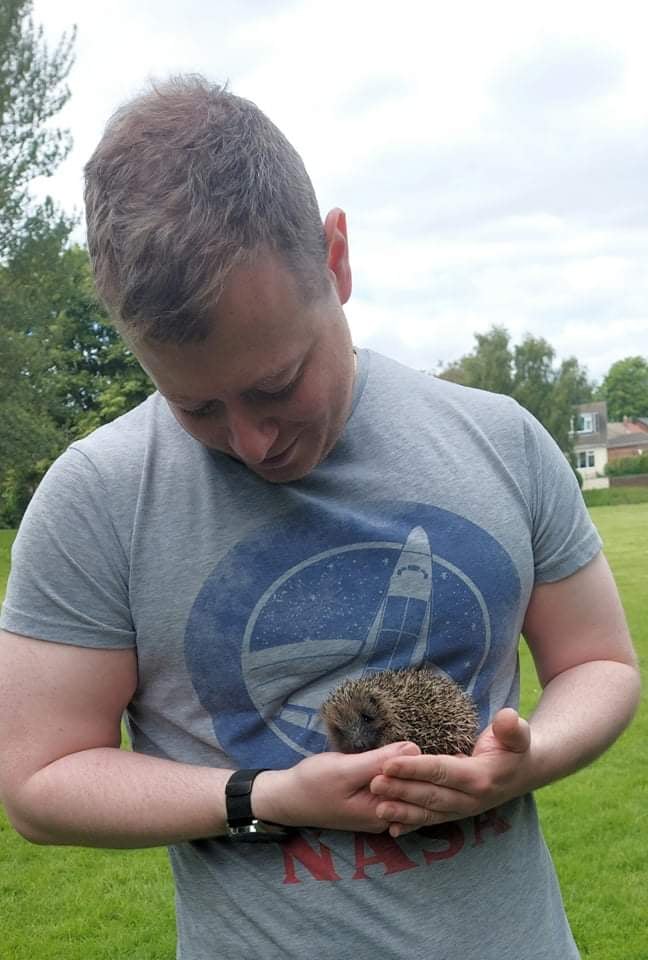
A North East university has launched a campaign this week tackling attitudes to hate crime, harassment and violence. The campaign, which includes an animated video, posters and a poem focussing on what is acceptable behaviour, has been created by two University of Sunderland graduates.
The new campaign was created in response to a national call to make campuses safer, and make students aware of what is and isn’t acceptable behaviour, both for themselves, and for their friends.
In 2016 a national universities taskforce examined violence against women, harassment and hate crime affecting university students, and made a series of recommendations for UK universities.
In response the University of Sunderland set up a number of initiatives, including online reporting tools, as well as face-to-face confidential support for students. The University’s ‘Bystander – Be the Difference’ training was delivered to over 300 students and staff.
The University approached the Students’ Union about the best way to reach students with messages that would resonate with them. The Union suggested that the University work with their digital interns Daniel Hepple and Zoe Cooper. Sunderland graduates Daniel and Zoe created a video outlining what is acceptable behaviour, and what support is available to students.
Zoe, 24, graduated from the University last year with an MA in Public Relations, and now works as a Digital Communications Assistant at the University of Sunderland’s Students’ Union. The project began with a poem which Zoe wrote in response to her experiences as a student:
What am wearing doesn’t mean you can touch me that way
I don’t want to see those pics, what more do I have to say
And it’s not nice to be whistled at in the streets
Do you think it’ll end with me in your bed sheets?
Or to be shouted at, rude comments made
Can’t you see that I’m actually afraid?
Sometimes I don’t even want to go out
Cos of your ‘lad banter’, the awful things you shout
And if I am out having a laugh down the pub
Or even crazy dancing in a nightclub
Doesn’t mean that I want your advances
Do you think this is what romance is?
And if I’m too drunk that I can’t say NO
It doesn’t mean you can still give it a go
We may have even flirted the other day
But today I’m not feeling it, so stay away
And if I invite you round to watch a movie
Definitely doesn’t mean I want to get groovy
Maybe it has even happened before
But if I don’t say yes, it’s against the law
And if for some reason I’m unconscious
That’s not a green light, that’s absolute nonsense
We need to all take a stand against this behaviour
Whether it’s happened to you, or your neighbour
So use our new reporting system
If something’s happened that’s proper liftin’
We need to know what’s happening to you all
So whether it’s something big, or something small
Report it!
And Get Supported!
“I created the poem as I wanted something that students would actually relate to and as a student myself only last year, I knew many of the struggles they face,” says Zoe.
“I felt it was important to make the words relatable. I wanted to make something memorable so that students recognised it instantly and could also feel connected to.”
Zoe was keen to focus not only on the criminal aspects of harassment, but also on behaviours which people – perhaps naively – consider acceptable.
She added: “I wanted the poem to focus on extremely serious aspects that most people know are wrong, but also actions which may be considered not as grave yet actually are still very damaging.
“I haven’t seen any other videos on this subject like ours, so hopefully this will make it stand out and people will remember it.”
Daniel Hepple created his animation in response to Zoe’s poem. Daniel, 22, from Sunderland, graduated with a degree in Digital Film Production in 2017, and this week started work as a Trainee Script Editor on CBBC’s The Dumping Ground.
“Zoe wrote a fantastic poem which I felt really lent itself to animation. We really wanted to get the message out there, and felt this animation would be the best way to do it.”
Daniel says that working on a professional campaign was a great learning curve for him, and taught him a lot about how such a campaign should engage with an audience.
Daniel added: “I think a lot of the messages in Zoe’s poem are common sense, but perhaps some things will surprise and educate people on sexual consent. There’s been an increase on consent awareness in the media, in the workplace and in education, and I’m just glad to have contributed to that.”
Oliver Pritchard, Deputy Director of Student Journey at the University of Sunderland, worked closely with Zoe and Daniel.
He says: “While our University is a supportive community, we determined that we should make a positive response to the national, Universities UK recommendations onChanging the Culture.
“We aim to promote a supportive environment in line with our strong track record on equality, diversity and inclusion. Key to this support is ensuring that our students and staff know how to raise concerns about gender based violence, hate crime and harassment, where and how to access support and how to make safe interventions via our Active Bystander initiative. Working closely with our Students’ Union we are now launching this cross campus information campaign so that our whole University community benefits from these key messages.”
On March 28, 2018 Universities UK, the national regulatory body for UK universities, published the report, Changing the Culture: One Year On – based on research carried out by the Leadership Foundation for Higher Education – assessing the sector’s progress in England, Wales and Northern Ireland in implementing recommendations from the UUK Taskforce’s 2016 report Changing the Culture.
Key findings of the report were that significant – but variable – progress was being made across the sector, with an increase in the number of disclosures in the past year, considered a positive indication of cultural change.
The report also said that tackling hate crime needed to have a higher priority, and that centralised systems and processes for collecting and recording data on sexual misconduct, hate crime and hate based harassment remain underdeveloped areas across most UK institutions.
Universities Minister for England, Sam Gyimah, said: “All students should be able to pursue their studies without fear of harassment. Whilst I am pleased to see the strides that have been taken by our universities to ensure this, there is clearly more to be done.
“Students must feel safe and able to report incidents, and policies and procedures must be in place to address all forms of harassment.”



